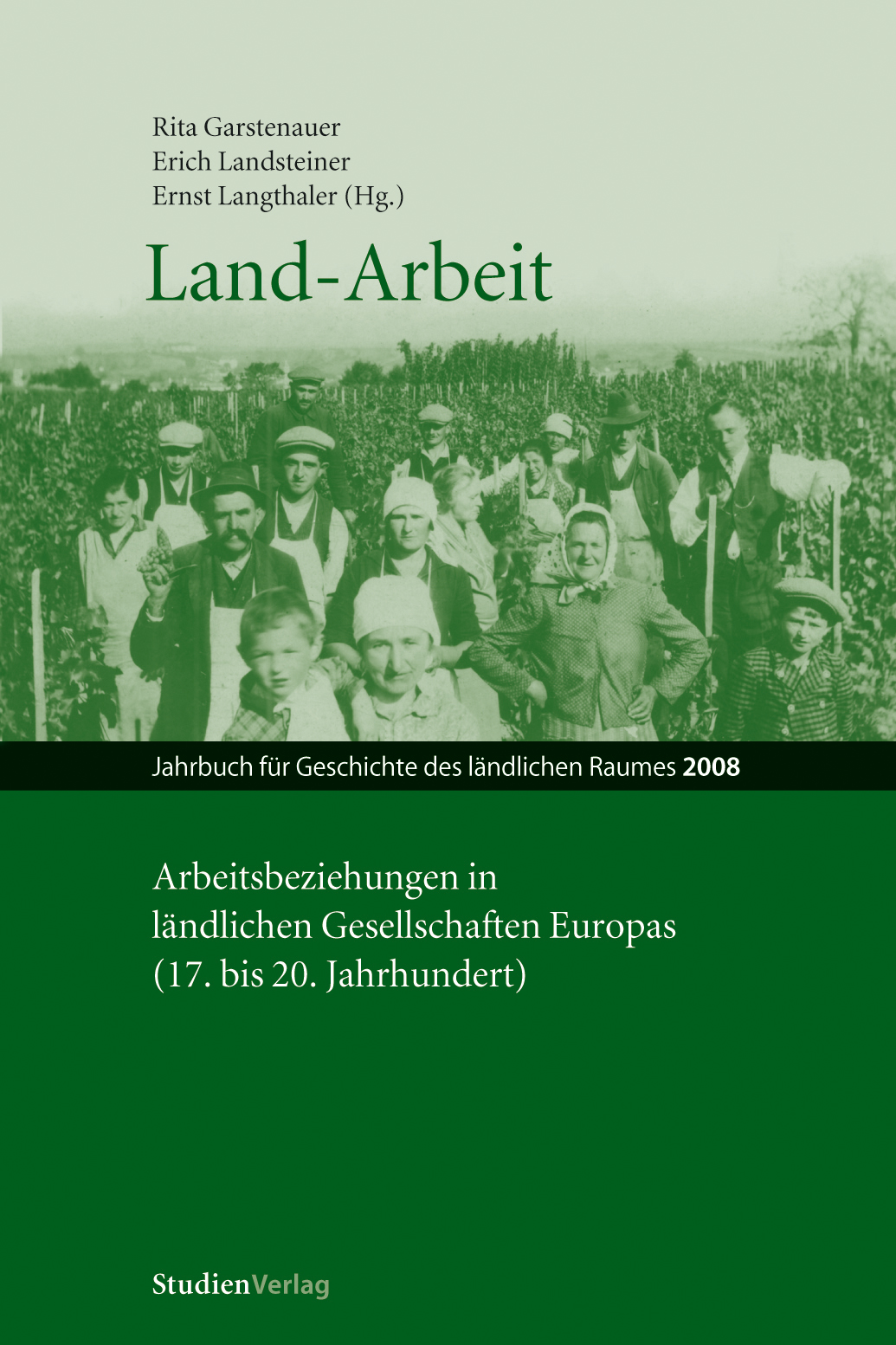Tagelöhner und Gesinde im ländlichen Strukturwandel
Ein südwestdeutsches Agrarsystem und seine Arbeitsmärkte (1770–1880)
DOI:
https://doi.org/10.25365/rhy-2008-4Abstract
Until today, German social history maintains the central assumption that in regions with partible inheritance only few farm hands and wage workers existed, because nearly every member of rural society owned some patches of land and therefore needed to take up waged work only temporarily. This assessment is based on information from statistics of the late 19th century, but does not correspond with the circumstances a hundred years earlier. To proof the latter hypothesis, this article explores the example of a classical region of partible inheritance in southwest Germany (Palatinate, Rhine-Hesse, Northern part of the Upper Rhine Valley). It does so, firstly, by means of statistics at the macro and meso levels (government, districts) and, secondly, with the help of peasant account books at the micro level. For this agrosystem the orientation towards export was typical in the course of the 18th century. The share of farm hands in the population increased between 1770 and 1850, reaching more than 10 percent in some districts, as a consequence of social differentiation and the commercialisation of agriculture. At the same time, the share of day labourers, especially those without any possession, increased dramatically from the turn to 19th century onwards, and can be estimated 20 percent in 1870. Partly, this multitude of potential labourers in the coun- tryside found working opportunities on medium-sized and large farms, which still made up 15 percent of the households in the 1790s. Among these wealthy peasants, a new social group called ‘peasant merchants’ was in particular need of ever more labourers. They employed farm hands, day labourers (temporarily as well as long term) and several specialised workers like distillers, milkers, carters, shepherds and herdsmen. However, a lack of labour in agriculture did not occur before the 1860s, when mining in neighbouring Saarland and industries in the cities started to draw on the local workforce.


